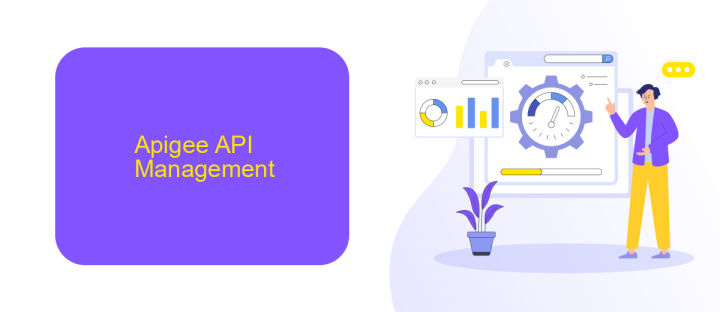Azure Vs Apigee
In today's digital landscape, businesses are increasingly reliant on robust API management platforms to streamline their operations and enhance connectivity. Azure API Management and Apigee are two leading solutions in this space, each offering unique features and capabilities. This article delves into a comparative analysis of Azure vs. Apigee, helping you determine which platform best suits your organization's needs.
Azure API Management
Azure API Management is a comprehensive solution for publishing, managing, securing, and analyzing APIs. It enables organizations to create consistent and modern API gateways for existing backend services, regardless of where they are hosted. With Azure API Management, developers can ensure secure and scalable API access, while also monitoring and analyzing API usage to optimize performance.
- API Gateway: Acts as a single point of entry for all API calls, ensuring security and scalability.
- Developer Portal: Provides a customizable platform for developers to explore, test, and subscribe to APIs.
- Analytics: Offers detailed insights into API usage, performance, and health.
- Security: Includes features like OAuth, JWT validation, and IP filtering to protect APIs.
- Integration: Easily integrates with other Azure services and third-party solutions like ApiX-Drive for seamless data synchronization and automation.
By leveraging Azure API Management, businesses can streamline their API lifecycle management and enhance their digital transformation initiatives. The integration capabilities with tools like ApiX-Drive further simplify the process of connecting various applications and services, making it a versatile choice for modern enterprises.
Apigee API Management

Apigee API Management, developed by Google, is a comprehensive platform designed to help businesses manage, secure, and scale their APIs. It provides robust tools for API analytics, traffic management, and developer engagement. Apigee allows organizations to create APIs that can be easily consumed by developers, ensuring seamless integration with various applications and services. The platform also offers advanced security features, including OAuth, JWT, and API key validation, to protect sensitive data and ensure compliance with industry standards.
In addition to its core features, Apigee integrates smoothly with third-party services like ApiX-Drive, which simplifies the process of connecting different applications and automating workflows. ApiX-Drive allows users to set up integrations without any coding, making it easier for businesses to streamline their operations and improve efficiency. By leveraging Apigee's powerful API management capabilities alongside ApiX-Drive's integration services, organizations can achieve a more cohesive and scalable API ecosystem, ultimately driving innovation and enhancing user experiences.
Integration Services

When comparing Azure and Apigee, integration services play a crucial role in determining the best platform for your needs. Both Azure and Apigee offer robust integration capabilities, but they cater to different requirements and use cases. Azure provides a comprehensive suite of tools for seamless integration with various Microsoft services and third-party applications, making it an excellent choice for businesses heavily invested in the Microsoft ecosystem.
- Azure Logic Apps: A cloud service that helps you automate workflows and integrate apps, data, and services across organizations.
- Azure API Management: A turnkey solution for publishing APIs to external and internal customers, providing features like security, monitoring, and analytics.
- Apigee Edge: A powerful API management platform that offers API design, analytics, and security, making it ideal for enterprises looking to manage their APIs effectively.
In addition to these platforms, services like ApiX-Drive can further simplify your integration needs by offering easy-to-use connectors and automation tools. ApiX-Drive enables seamless data transfer between various applications, reducing the complexity of manual integrations. Ultimately, the choice between Azure and Apigee will depend on your specific integration requirements and existing technology stack.
Pricing

When comparing the pricing models of Azure API Management and Apigee, it is essential to consider the specific needs and scale of your business. Both platforms offer flexible pricing tiers designed to accommodate various levels of usage and functionality.
Azure API Management provides a range of pricing options, including a consumption-based tier ideal for small to medium-sized businesses and fixed-rate tiers for larger enterprises. Apigee, on the other hand, offers a more straightforward pricing structure with options tailored to different scales of API traffic and enterprise needs.
- Azure API Management: Consumption-based pricing, Developer, Basic, Standard, and Premium tiers.
- Apigee: Evaluation, Standard, Enterprise, and Enterprise Plus plans.
Additionally, both platforms offer various features and integrations that can impact overall costs. For instance, using services like ApiX-Drive can help streamline integrations, potentially reducing the complexity and cost of managing APIs. Therefore, it's crucial to evaluate the total cost of ownership, including any third-party services, when making your decision.
Use Cases
Azure API Management is ideal for enterprises looking to manage their APIs with robust security, scalability, and analytics. It is particularly suited for organizations that already use other Azure services, as it offers seamless integration with Azure's ecosystem. Typical use cases include managing internal APIs, exposing APIs to external developers, and creating API gateways that ensure secure and efficient communication between microservices. Its advanced features like multi-region deployment and global reach make it a preferred choice for large-scale operations.
Apigee, on the other hand, excels in providing API lifecycle management and is often the go-to for businesses focusing on digital transformation and customer-centric applications. It is highly effective for companies looking to monetize their APIs and gain insights through comprehensive analytics. Apigee's capabilities are enhanced when integrated with services like ApiX-Drive, which simplifies the automation of data flows between different applications and APIs. This makes it suitable for use cases involving complex integrations and real-time data synchronization across various platforms.
- Automate the work of an online store or landing
- Empower through integration
- Don't spend money on programmers and integrators
- Save time by automating routine tasks
FAQ
What are the primary differences between Azure API Management and Apigee?
Which platform is better for handling high traffic volumes?
How do Azure API Management and Apigee handle security?
What are the key features for integration and automation in Azure API Management and Apigee?
Which platform offers better analytics and monitoring capabilities?
Apix-Drive will help optimize business processes, save you from a lot of routine tasks and unnecessary costs for automation, attracting additional specialists. Try setting up a free test connection with ApiX-Drive and see for yourself. Now you have to think about where to invest the freed time and money!


